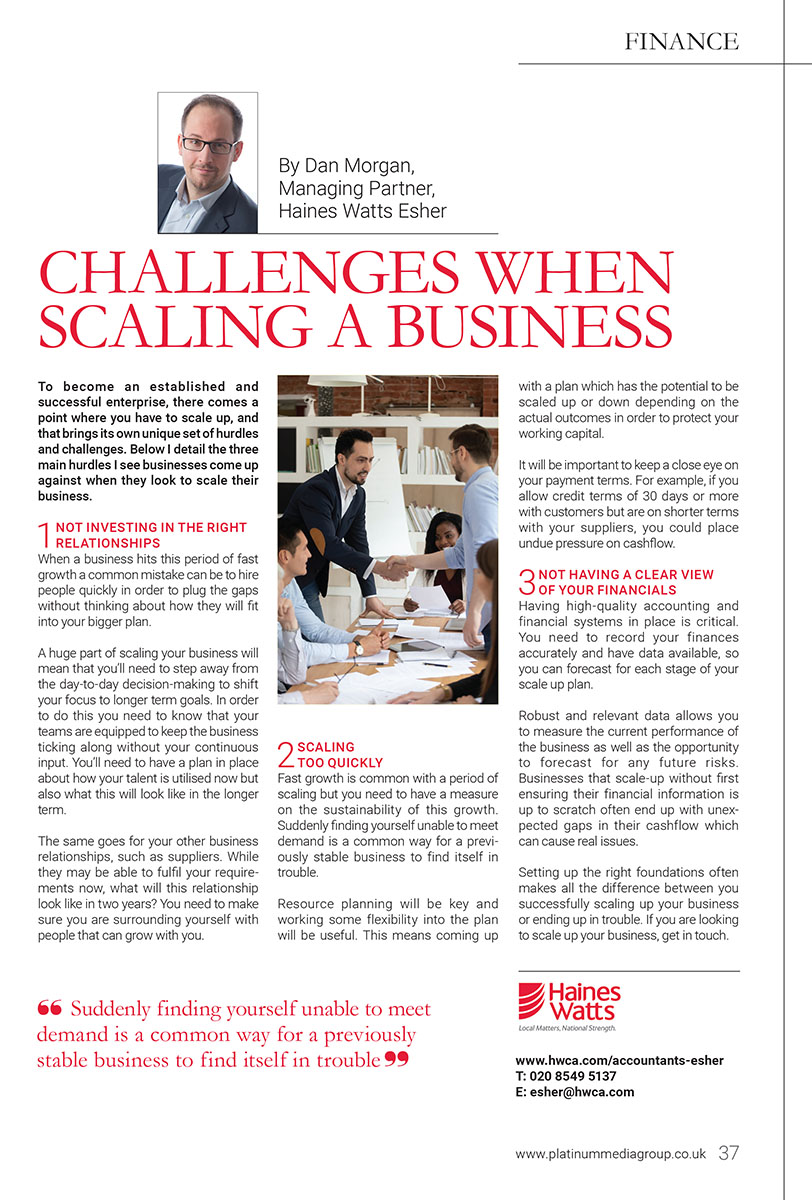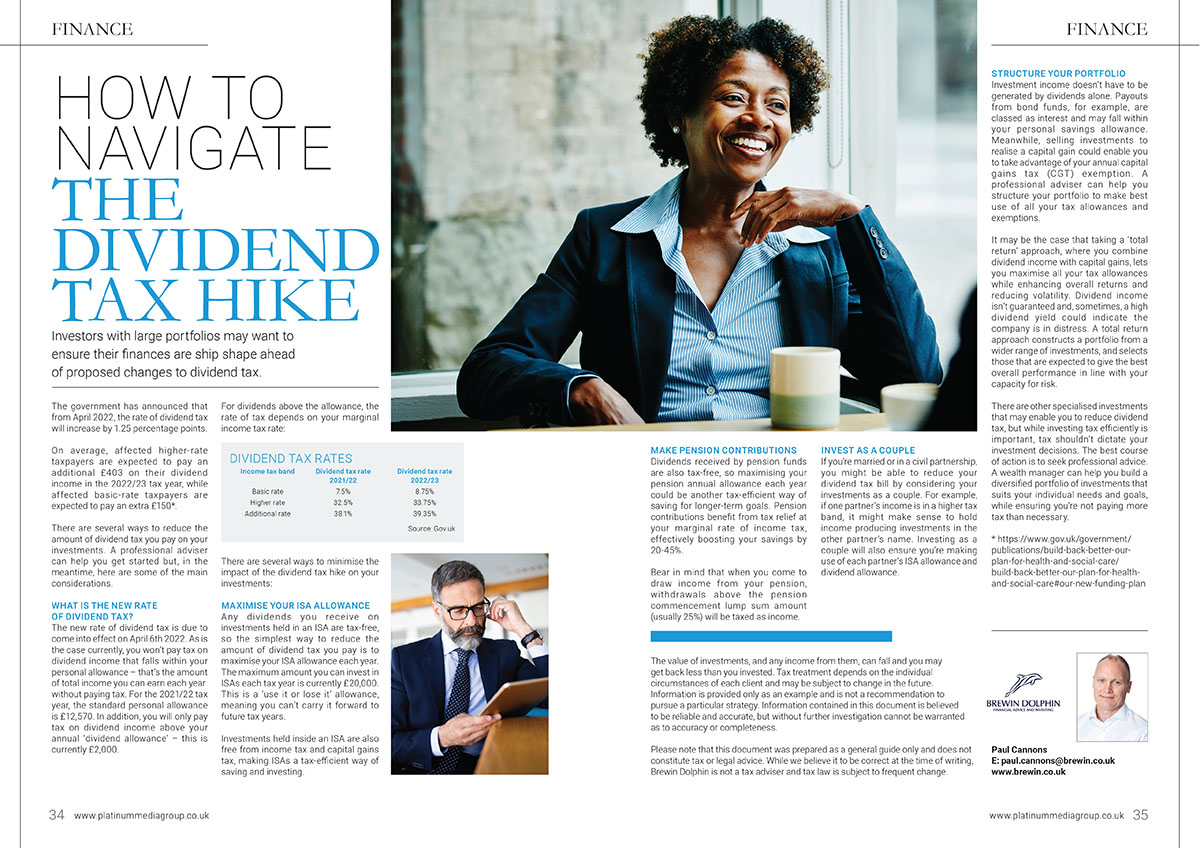
Business optimism is high despite challenging months ahead, finds Andrew Griggs, Senior Partner, Kreston Reeves
The business environment has never been so uncertain. The impact of the global pandemic and Brexit is likely to be felt for many years to come, bringing new challenges, opportunities and change. So too will the mitigation of climate change, the continuing impact of technology and changing working patterns. For many businesses, it is difficult to know what tomorrow might hold.
That is why we have conducted a nationwide research project where we explore the issues, constraints on growth, priorities and plans for the future of 652 business leaders across the UK. Businesses must continue to look ahead and shape their future.
Our research, published in a report called Shaping your future, suggests businesses are incredibly confident for their future but are facing significant challenges over the next two years, with reduced cash reserves, stressed supply chains, and a tough recruitment environment.
The headline findings from our Shaping your future report include:
• 36% of businesses surveyed report lower cash reserves now than at the beginning of the COVID pandemic.
• 20% of businesses that have borrowed from Government-backed loan schemes do not expect to repay that money.
• Despite this, businesses are upbeat for their future – 39% expect to see turnover increase by up to 25% in the next 12 months, and 27% expect turnover to increase by between 26% and 50%.
• 52% of businesses are experiencing supply chain delays of up to six months, with a third (32%) looking to reduce output and orders as a result.
• 62% of businesses experiencing supply chain delays expect profitability to fall by up to 10%; 29% expect profitability to fall by 11-25%.
• 23% of businesses are prioritising training and upskilling their workforce and 20% on staff retention to address recruitment challenges
• 27% of businesses offer no incentive programme to their employees at all.
• A third of businesses surveyed expect to fund future growth through retained profits and organic company growth.
• Over half (56%) say they are exploring merger and acquisition (M&A) opportunities over the next 12 months.
The current economic and business environment is incredibly tough for businesses: in some ways coming out of the pandemic feels harder than it did when COVID first began to bite. The shared common experiences of the first lockdown, where all businesses had to adapt to new working patterns, no longer exist as businesses return to whatever their ‘new normal’ might be.
It is encouraging, therefore, to see businesses so confident for their future – 87% of the businesses we spoke to are ‘confident’ or ‘very confident’ about the future of their business. There is much to celebrate.
This does not hide worrying signs on the horizon. Supply chains are causing serious problems for businesses and are predicted to do so for two or more years. That is, say businesses in our research, hitting bottom line profits. A fifth (20%) of businesses surveyed do not believe they will be able to repay COVID borrowing and then there is the threat of rising inflation having risen to a 10-year high of 4.2%.
Finding and retaining staff are also very real issues across many industry sectors and show no signs of abating. A key component of attracting and keeping staff are the incentive programmes offered over and above pay, and over a quarter (27%) of businesses surveyed offer no such programme, leaving them at a disadvantage.
Funding growth
Funding business growth is also likely to be challenging. Our survey suggests that future plans will be funded primarily through retained profit (33%) and via organic growth (30%). Both are sensible approaches to business growth but are uniquely vulnerable to changing trading conditions, can add stress to cash flow, and are likely to lead to much slower growth.
Debt remains cheaper than equity when looking to fund growth, with most of
the world’s fastest-growing businesses achieving that through borrowing. Businesses should explore all funding options before making decisions.
M&A activity has also picked up, with over half (56%) suggesting they will explore growth through mergers or acquisitions over the next two years.
Deals put on hold in early 2020 began to move forward again in mid-2020 and in 2021. Some business owners have found the pandemic has caused them to retire earlier than anticipated, and those who have done well out of the pandemic and with cash reserves are looking for strategic acquisitions. It is buoyed by plenty of cash from private equity and Family Offices investors.
It is important, now more so than ever, that business leaders take stock, understand those pressures facing their business, identify and plan for future pinch points, and shape the future they want for their business.
You can download a full copy of the report by visiting www.krestonreeves.com/shapingyourfuture
The Kreston Reeves Shaping your future report is being supported by a series of events, roundtables and articles over the next two years. We invite you to join the conversation at #Shapingyourfuture





